The average weight for a 13-year-old is about 102 pounds. This is based on the average height for a 13-year-old, which is about 5 feet 3 inches. The average weight can vary depending on the height of the individual. For example, if a 13-year-old is 5 feet 1 inch, the average weight would be closer to 97 pounds. If the 13-year-old is 5 feet 5 inches, the average weight would be closer to 112 pounds.
What Is The Average Weight For A 13-Year-Old Boy?
However, according to the Centers for Disease Control and Prevention (CDC), the average weight for a 13-year-old boy in the United States is around 102 pounds. They are growing and developing at different rates, so it is hard to give a single number that represents the “average” weight for a 13-year-old boy. At 13 years old, boys are going through many changes both physically and emotionally.
There are a lot of factors that can affect a 13-year-old boy’s weight, including his height, his body composition, his activity level, and his diet. Boys who are very active may weigh less than boys who are less active, and boys who eat a lot of high-calorie foods may weigh more than boys who eat a more balanced diet. Some boys may be taller or shorter than average, and some may have more muscle mass or body fat than others.

If you are concerned about your son’s weight, talk to his doctor. There is no “right” weight for a 13-year-old boy, and boys of all different weights can be healthy. He or she can help you determine if your son is at a healthy weight for his height, body type, and activity level.
Average Weight For A 13-Year-Old Female
However, if a girl is very tall or very short, her weight may be above or below average. The average weight for a 13-year-old female is about 105 pounds. This can vary depending on a number of factors, such as height and body composition. Additionally, girls who are very active or have a lot of muscle mass may weigh more than average, while girls who are less active or have less muscle mass may weigh less than average. Generally, girls this age tend to be of average weight if they are of average height.
How Much Should A 13-Year-Old Weigh?
The best way to determine if your child is at a healthy weight is to talk to their doctor. Every child is different and will grow at different rates. There is no one answer to the question of how much a 13-year-old should weigh.
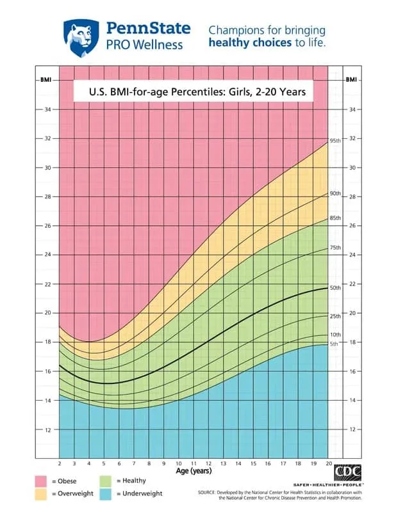
There are a few things you can keep in mind when thinking about your child’s weight. Second, keep in mind that height and weight go hand-in-hand. So, if your child is taller or shorter than average, their weight may be different than other kids their age. First, remember that boys and girls will usually have different ideal weights.
Finally, don’t forget that weight is just one part of overall health. Even if your child falls outside of the “average” range, they may still be healthy. As long as they are eating healthy foods, getting enough exercise, and growing at a steady rate, they are likely just fine.
Average Height For 13 Year Olds
The average height for a 13-year-old is about 5 feet 3 inches. Again, there is a lot of variation and some 13-year-olds may weigh more or less than this. The average weight for a 13-year-old is around 100 pounds. However, there is a lot of variation, so some 13-year-olds may be taller or shorter than this. Boys tend to be a bit taller than girls at this age.
Average Height For 13 Year Old Boy
The average weight for a 13-year-old boy is 115 pounds. The average height for a 13-year-old boy is 5 feet 6 inches. The average BMI for a 13-year-old boy is 19.1.
Average Height For 13-Year Old Female
Most girls will reach their full adult height by the time they are 16 years old. The average height for a 13-year-old female is about 5 feet 3 inches. However, this can vary depending on a number of factors, such as genetics and nutrition.
What Is Underweight For A 13 Year Old?
The average weight for a 13-year-old is about 102 pounds. Underweight is defined as having a body mass index (BMI) below the fifth percentile for one’s age and gender. For example, a 13-year-old girl who is 5 feet tall and weighs 90 pounds would have a BMI of 17.8, which would put her in the underweight category. However, some 13-year-olds may be underweight.
What Is Overweight For A 13 Year Old?
For example, the Centers for Disease Control and Prevention (CDC) defines overweight as a body mass index (BMI) at or above the 85th percentile for children and teens of the same age and sex. You can use a BMI calculator for children and teens to determine your child’s BMI. There is no one answer to the question of what is considered overweight for a 13-year-old. However, there are some general guidelines that can be used to determine if a 13-year-old is overweight. BMI is a measure of body fatness and is calculated by dividing a person’s weight in kilograms by their height in meters squared. Additionally, what is considered a healthy weight for a 13-year-old may also depend on factors such as height and body composition. This is because different people have different body types and sizes.
BMI Percentile Chart
The BMI percentile chart takes into account that BMI varies by age and sex. If a child’s BMI is in the 85th percentile, that means that 85% of children of the same age and sex have a lower BMI. The BMI percentile chart is used to compare a child’s BMI to other children of the same age and sex. The BMI is a measure of body fat based on height and weight. The BMI percentile chart is a tool used by doctors and other healthcare professionals to assess the body mass index (BMI) of children and teens. For example, a 13-year-old girl and a 13-year-old boy will have different BMIs.
Various Weight Percentiles
However, there are some general weight percentiles that can give you an idea of what is considered average for this age group. For boys, the 50th percentile for weight is 100 pounds. For girls, the 50th percentile for weight is 101 pounds. This means that 50% of 13-year-old girls weigh 101 pounds or less, and 50% weigh more than 101 pounds. The average weight for a 13-year-old varies depending on a number of factors, including height, body composition, and activity level. This means that 50% of 13-year-old boys weigh 100 pounds or less, and 50% weigh more than 100 pounds.
Various Weight Percentiles For Boys
There are a lot of variables to take into account when trying to determine the average weight for a 13-year-old boy. Some of these variables include height, age, and activity level.
The CDC growth charts take into account height and weight measurements for children of all ages. The Centers for Disease Control and Prevention (CDC) growth charts are one way to look at weight percentiles.

The 50th percentile is the “average” weight. According to the CDC, the 50th percentile for weight for a 13-year-old boy is 102 pounds. This means that 50% of 13-year-old boys weigh 102 pounds or less.
If a 13-year-old boy weighs more than 102 pounds, he is in the 75th percentile for weight. This means that he weighs more than 75% of 13-year-old boys.
This means that he weighs less than 25% of 13-year-old boys. If a 13-year-old boy weighs less than 102 pounds, he is in the 25th percentile for weight.
There are a lot of different weight percentiles for boys. The CDC growth charts are just one way to look at weight percentiles.
Various Weight Percentiles For Girls
There are a lot of variables to consider when it comes to weight and height percentile for girls. However, if that same girl weighed 120 pounds, she would be in the 75th percentile for weight. For example, a 13-year-old girl who is 5’0″ and weighs 100 pounds would be in the 50th percentile for both height and weight. The age of the girl, her height, and her weight all play a role in determining her percentile.
For example, a girl who is 5’0″ and weighs 100 pounds would be in the 50th percentile for both height and weight. However, if that same girl weighed 120 pounds, she would be in the 75th percentile for weight. The following are various weight percentiles for girls based on height. There are a lot of different weight percentiles for girls depending on her height.
5’0″:
-50th percentile: 100 pounds
-75th percentile: 120 pounds
-90th percentile: 140 pounds
5’1″:
-50th percentile: 103 pounds
-75th percentile: 124 pounds
-90th percentile: 145 pounds
5’2″:
-50th percentile: 106 pounds
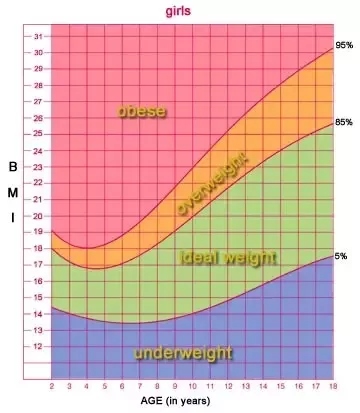
-75th percentile: 128 pounds
-90th percentile: 150 pounds
5’3″:
-50th percentile: 109 pounds
-75th percentile: 132 pounds
-90th percentile: 155 pounds
5’4″:
-50th percentile: 112 pounds
-75th percentile: 136 pounds
-90th percentile: 160 pounds
5’5″:
-50th percentile: 115 pounds
-75th percentile: 140 pounds
-90th percentile: 165 pounds
5’6″:
-50th percentile: 118 pounds
-75th percentile: 144 pounds
-90th percentile: 170 pounds
5’7″:
-50th percentile: 121 pounds
-75th percentile: 148 pounds
-90th percentile: 175 pounds
5’8″:
-50th percentile: 124 pounds
-75th percentile: 152 pounds
-90th percentile: 180 pounds
5’9″:
-50th percentile: 127 pounds
-75th percentile: 156 pounds
-90th percentile: 185 pounds
5’10”:
-50th percentile: 130 pounds
-75th percentile: 160 pounds
-90th percentile: 190 pounds
5’11”:
-50th percentile: 133 pounds
-75th percentile: 164 pounds
-90th percentile: 195 pounds
6’0″:
-50th percentile: 136 pounds
-75th percentile: 168 pounds
-90th percentile: 200 pounds
Average Weight & Height By Age
If you’re concerned about your child’s weight, talk to your pediatrician. The average height is about 62.5 inches for boys and 61.5 inches for girls. According to the Centers for Disease Control and Prevention (CDC), the average weight for a 13-year-old is 115 pounds. However, keep in mind that these are just averages and that your child may be taller or shorter than average.
Average Weight & Height For 10-Year-Old
The average height for a 10-year-old boy is 54.5 inches, while the average height for a 10-year-old girl is 53.5 inches. For example, the average weight for a 10-year-old boy is 80 pounds, while the average weight for a 10-year-old girl is 77 pounds. The average weight and height of a 10-year-old are both relative to the child’s age and gender.
How Much Should 11-Year-Olds Weigh?
However, according to the Centers for Disease Control and Prevention (CDC), the average weight for an 11-year-old boy is 102 pounds, and the average weight for an 11-year-old girl is 97 pounds. There is no definitive answer to this question as each child is different and will grow at different rates.
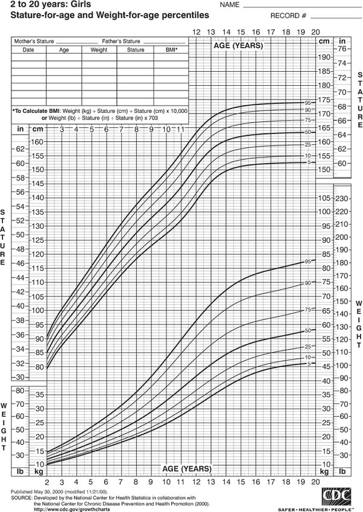
If you are concerned about your child’s weight, it is best to speak with their doctor. It is important to remember that these are just averages and that some children may be above or below these weights.
What Is The Average Weight For A 12-Year-Old?
Most 12-year-olds will reach their adult height by the time they are 16 years old. The average weight for a 12-year-old is about 102 pounds. 12-year-olds are still growing and gaining weight at a rapid pace. The average height for a 12-year-old is about 4 feet 9 inches.
How Much Should 14-Year-Olds Weigh?
For example, a 14-year-old boy who is 5 feet tall should ideally weigh between 102 and 130 pounds, while a 14-year-old girl who is the same height should weigh between 103 and 136 pounds. However, it is important to note that these are only general guidelines and that some teenagers may fall outside of these ranges and still be healthy. If you are concerned about your teenager’s weight, it is best to speak with their doctor to get specific recommendations. However, there are general weight ranges that 14-year-olds can fall into based on their height. There is no definitive answer to this question as each individual teenager will have different ideal weights based on their individual body types and bone structures.
Average Weight & Height For A 15-Year-Old.
There is no definitive answer to this question as everyone grows at different rates and reaches different milestones at different ages. However, according to the Centers for Disease Control and Prevention (CDC), the average weight for a 13-year-old boy is 100.5 pounds (45.5 kg) and the average weight for a 13-year-old girl is 98.5 pounds (44.8 kg). The CDC also reports that the average height for a 13-year-old boy is 63.5 inches (161.9 cm) and the average height for a 13-year-old girl is 63.2 inches (160.5 cm).
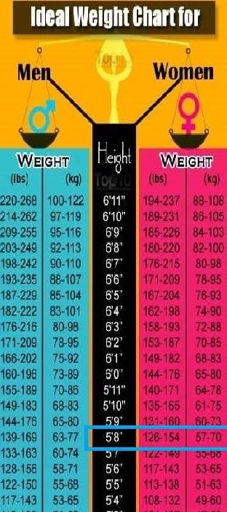
Height is determined by genetics, while weight is influenced by many factors, including diet and activity level. It is also important to remember that weight and height are not the same thing. So, even if a child is on the lower end of the weight spectrum for their age, they may still be healthy if they are eating well and getting plenty of exercise. These are just averages though and some kids may be taller or shorter, or heavier or lighter than these averages.
Average Weight & Height For A 16-Year-Old.
Of course, there is a wide range of “normal” weights and heights for 16-year-olds, and your child may be taller or shorter, or heavier or lighter, than average and still be healthy. The average weight for a 16-year-old is about 145 pounds. The average height for a 16-year-old is about 5 feet, 5 inches.
BMI is a calculation that uses height and weight to estimate how much body fat a person has. You can use the BMI calculator for teens to find out your teen’s BMI. There are a number of different ways to determine whether a person is at a healthy weight. One common method is the body mass index (BMI).
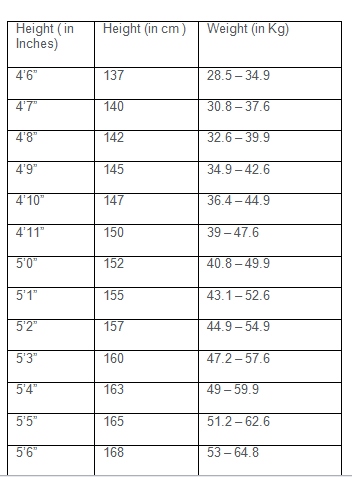
You can use a tape measure to find out your waist circumference. Another way to determine if a person is at a healthy weight is to look at their waist circumference. For most people, a waist circumference of more than 40 inches (102 centimeters) for men and 35 inches (88 centimeters) for women is a sign of too much abdominal fat.
If you are concerned about your weight or your child’s weight, talk to your doctor or a registered dietitian.
As A Parent, How Can You Talk To Your Teen About Eating Disorders?
It is important to remember that eating disorders are serious medical conditions that can have a profound impact on a person’s health and well-being. If you are concerned that your teen may be struggling with an eating disorder, it is important to seek professional help. As a parent, you may be wondering how to talk to your teen about eating disorders. Here are some tips for talking to your teen about eating disorders:

It is important to avoid judgment when talking to your teen about eating disorders. Remember that eating disorders are serious medical conditions that can have a profound impact on a person’s health and well-being. 1. Avoid judgment.
Eating disorders can be very difficult to overcome, and your teen will need all the support they can get. It is important to be supportive when talking to your teen about eating disorders. 2. Be supportive.
It is important to avoid comparisons when talking to your teen about eating disorders. 3. Avoid comparisons. Eating disorders are unique to each individual, and comparing your teen’s experience to someone else’s can be hurtful and counterproductive.
Eating disorders are complex conditions that require specialized treatment. If you are concerned that your teen may be struggling with an eating disorder, it is important to seek professional help. 4. Seek professional help.
How Can A 13 Year Old Lose Belly Fat?
How Can A 13 Year Old Lose Belly Fat?

Additionally, it is important to talk to a doctor or other healthcare professional before starting any weight loss program, as they can provide guidance on how to safely and effectively lose weight. There is no one-size-fits-all answer to this question, as the best way for a 13 year old to lose belly fat will vary depending on factors such as the individual’s current weight, body type, and activity level. However, some tips on how a 13 year old can lose belly fat may include eating a healthy diet, getting regular exercise, and avoiding sugary and fatty foods.
Frequently Asked Questions
1.What is the average weight for a 13-year-old?
The average weight for a 13-year-old is about 102 pounds. However, weight can vary a lot, depending on how tall the child is. For example, a child who is 4 feet 9 inches tall may weigh anywhere from 80 to 120 pounds.
2.How much should a 13-year-old weigh?
There is no one “right” weight for a 13-year-old. It depends on how tall the child is. For example, a child who is 4 feet 9 inches tall may weigh anywhere from 80 to 120 pounds.
3.What is a healthy weight for a 13-year-old?
A healthy weight for a 13-year-old is one that is appropriate for the child’s height. For example, a child who is 4 feet 9 inches tall may weigh anywhere from 80 to 120 pounds.
4.How can I tell if my 13-year-old is overweight?
There are a few ways to tell if your child is overweight. One way is to calculate their body mass index (BMI). BMI is a number that is calculated using a child’s height and weight. A BMI of 25 or higher is considered overweight. Another way to tell if your child is overweight is to look at their waist size. A waist size of more than 35 inches for boys or more than 32 inches for girls is considered unhealthy.
5.What are the health risks of being overweight?
There are a few health risks associated with being overweight. These include an increased risk for type 2 diabetes, high blood pressure, and high cholesterol. Being overweight can also lead to joint problems and sleep apnea.
6.What can I do to help my 13-year-old lose weight?
If you are concerned about your child’s weight, the best thing to do is to talk to their doctor. The doctor can help you develop a plan to help your child lose weight in a healthy way. This may include making changes to their diet and getting more exercise.
7.My 13-year-old is overweight. Should I put them on a diet?
If your child is overweight, you should talk to their doctor before putting them on a diet. The doctor can help you develop a plan to help your child lose weight in a healthy way. This may include making changes to their diet and getting more exercise.
8.What are some healthy foods for a 13-year-old to eat?
There are a few healthy foods that are good for a 13-year-old to eat. These include fruits, vegetables, lean protein, and whole grains.
9.What are some unhealthy foods for a 13-year-old to eat?
There are a few unhealthy foods that a 13-year-old should avoid. These include sugary drinks, processed foods, and foods high in saturated fat.
10.How much exercise should a 13-year-old get?
A 13-year-old should get at least 60 minutes of exercise every day. This can include activities like walking, biking, or playing sports.
Final thoughts
The average weight for a 13-year-old is about 102 pounds. However, this can vary depending on a number of factors, such as height and body composition. It’s important to remember that there is no “perfect” weight, and that everyone is different. If you’re concerned about your weight, talk to your doctor or a registered dietitian.